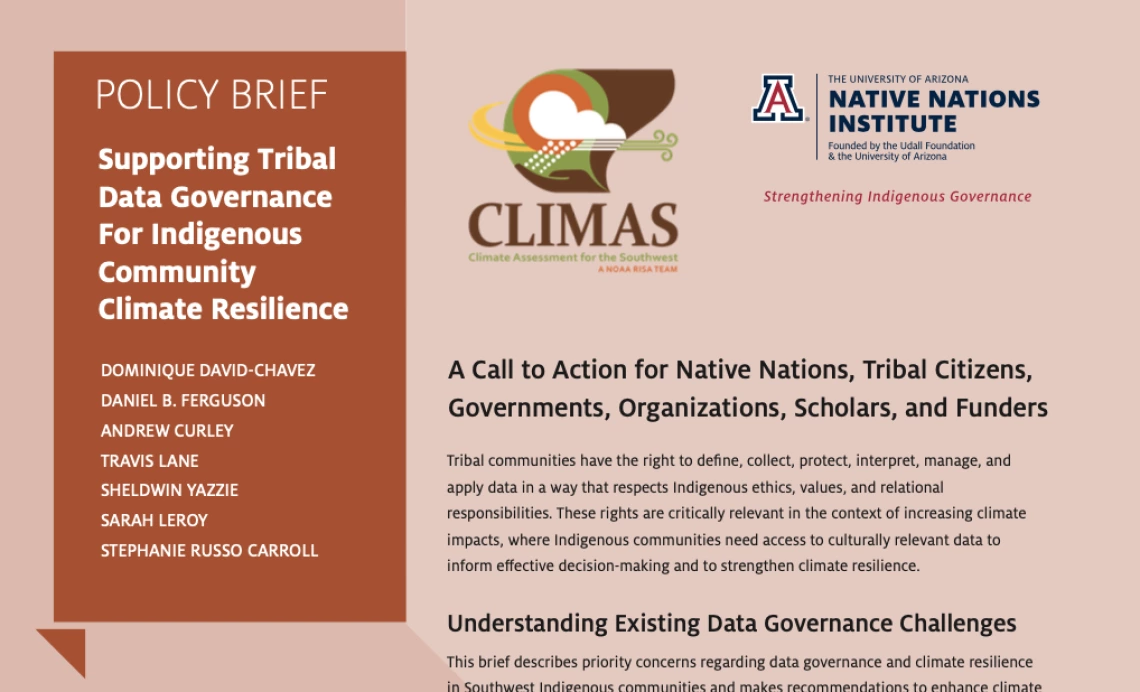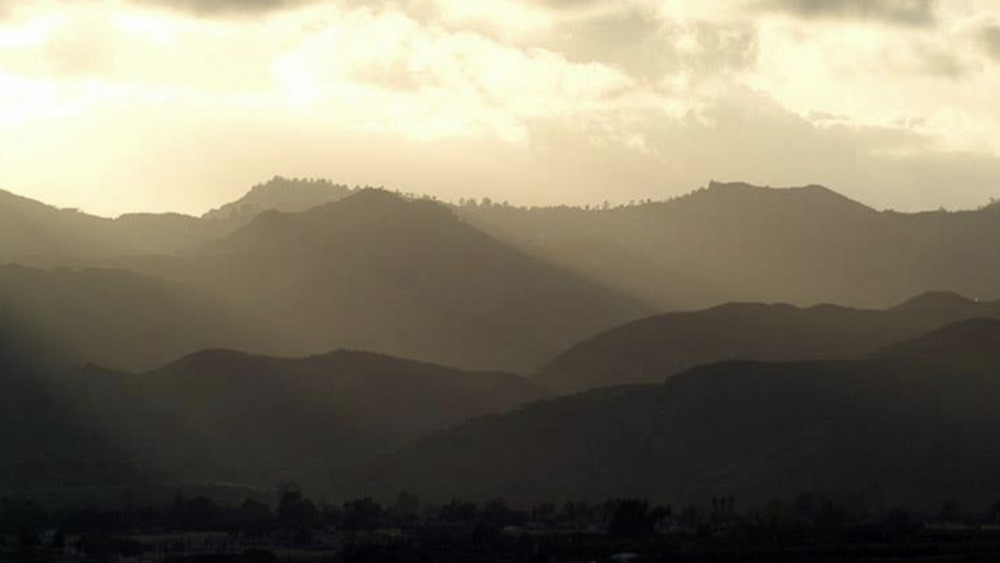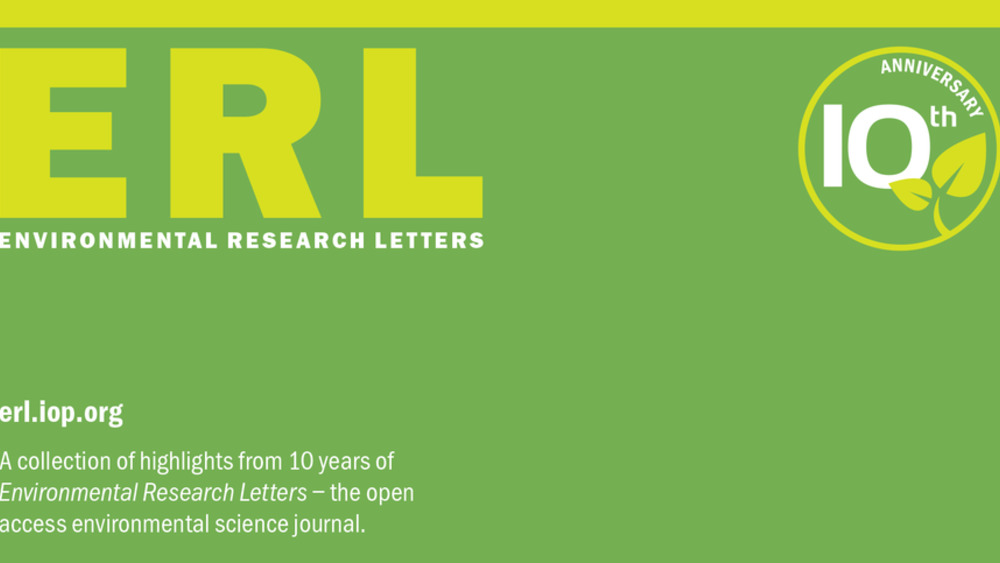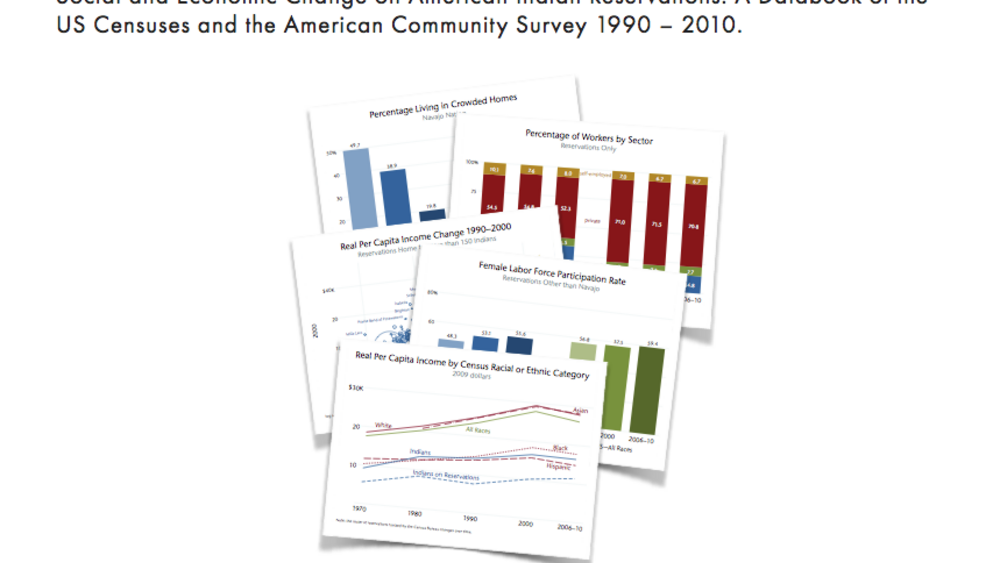Tribal communities have the right to de fine, collect, protect, interpret, manage, and apply data in a way that respects Indigenous ethics, values, and relational responsibilities. These rights are critically relevant in the context of increasing climate impacts, where Indigenous communities need access to culturally relevant data to inform e ffective decision-making and to strengthen climate resilience.
Additional Information
Dominique David-Chavez, Daniel B. Ferguson, Andrew Curley, Travis Lane, Sheldwin Yazzie, Sarah LeRoy, and Stephanie Russo Carroll. 2019. Policy Brief: Supporting Tribal Data Governance for Indigenous Community Climate Resilience. Tucson: Native Nations Institute and the Climate Assessment for the Southwest, University of Arizona.




